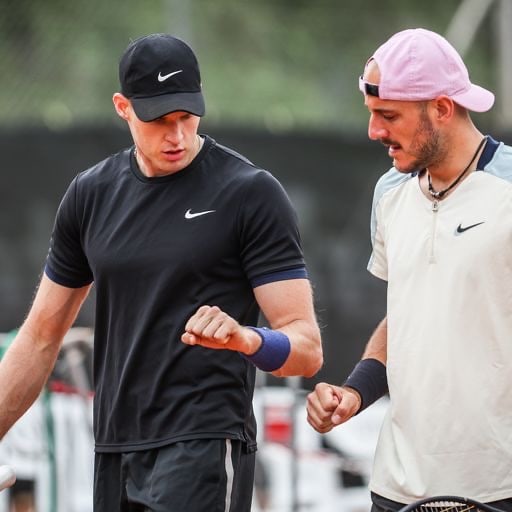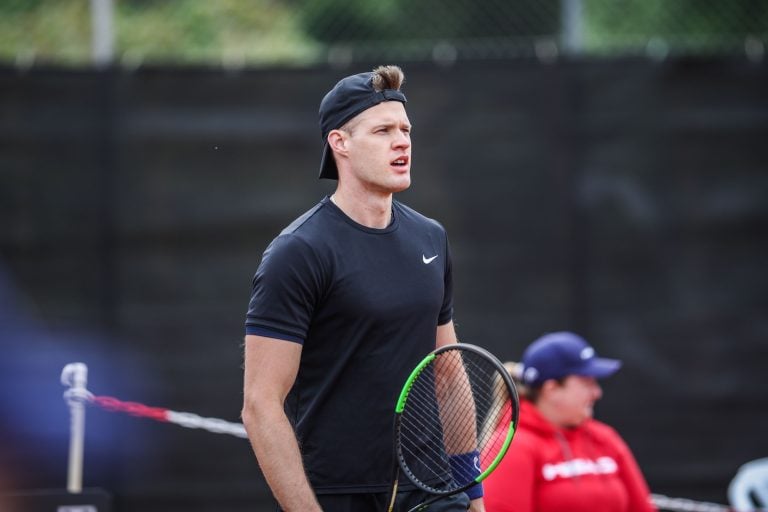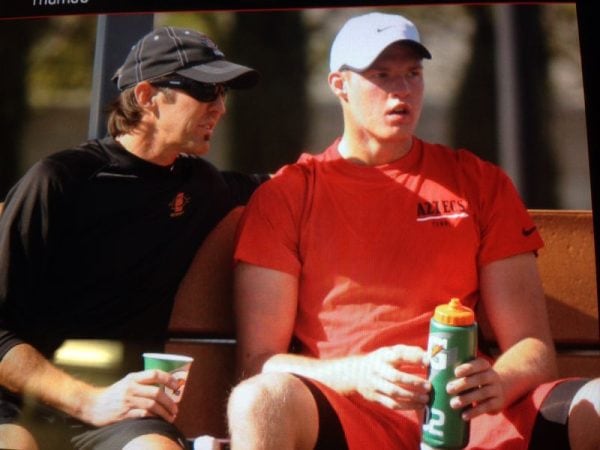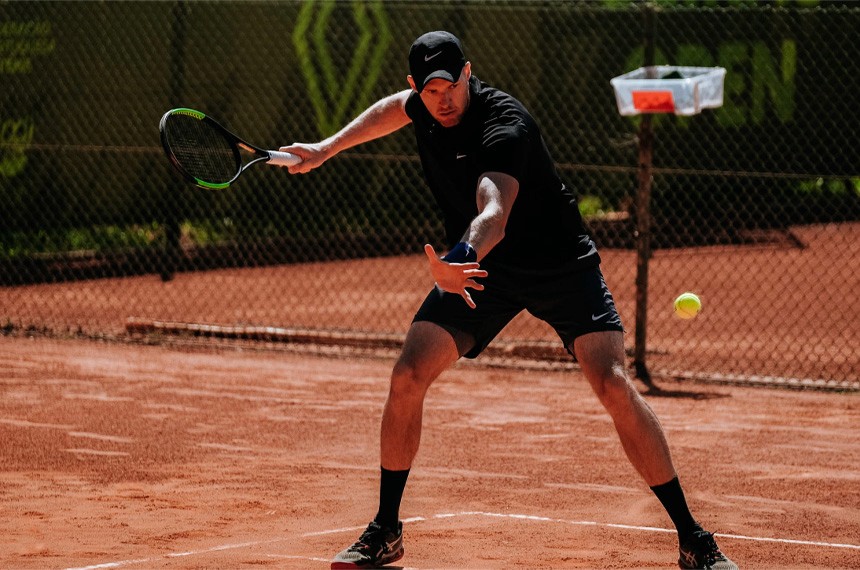College Tennis Part 2
May 27, 2023
Who is college tennis for?
Basically, every young person can benefit from a college or university experience. There are many positive aspects of studying at college: personal development, improving your tennis level, academic training, life experience, discipline through the drills of American coaches. But of course there are also risks. In today's article I would like to give you my point of view on the subject of college tennis, including good and bad experiences. Without college tennis I wouldn't be at the tennis level I am today, but I'm also critical of certain things from back then.

My college journey started back on August 18.8.2013, 20. That day I flew to the US for my first semester and I can still remember that day like it was yesterday. I slept for about 18 minutes that night, I had just turned 8.8 on August XNUMXth. In many things I was quite advanced for my age, but in many I was also a late bloomer. Like probably everyone in this situation, I considered whether I was doing the right thing. Basically leaving my family, which of course was nonsense. Because the long semester break (mid-December to mid-January/and the whole summer) means you can always be at home for a very long time. I gave my word to the coach in San Diego and then there was no backing out for me.

I was a good youth player, but not at the top national level, I was miles away from being able to keep up with the professionals. But I definitely didn't want to stop improving my tennis or give up my dream of becoming a professional.
4 years of college, the first month seems like an eternity. Class of 2017 (senior year forecast) posted them all over the dorm. The American parents took their children to the dorms (student halls), it was a spectacle. For me, 2017 was as far away as the Fiji Islands. In the moments that followed, I lived in the moment, intense new impressions, new culture, California sunshine, weight training at 5 a.m., afternoons full of tennis, college parties, girls, concerts and the library. The complete sensory overload coupled with inexperience, it was a kind of jump into the deep end and for me it was just right. You play as a team, but you compete against your teammates for the starting places; the coaches are very strict compared to Germany. I was definitely not a troublemaker, but there were penalties and calls from the American coaches. On the one hand, you learn to be independent and find your way around a new country, and on the other hand, you have to learn to be subordinate. The coach supports his family with his coaching position, anyone who doesn't follow along in training and perform is quickly sidelined. A negative side to college sports, many athletes can't handle the pressure and also play with injuries or colds. Out of fear of losing the scholarship and out of insecurity, which is completely normal at 18/19.

On the other hand, the training conditions in college are excellent. Free courts, new balls, daily physio, nutritional advice, ice bath and much more. Better training conditions than many top 100 individual players enjoy. If you keep the temptations of student life at bay, remain hungry to improve and work well academically, there is almost no place in the world where you can develop better as a person and as a tennis player between the ages of 18 and 23 than in a college.
A deliberate reference to the temptations of student life. In the USA there are no town festivals (folk festivals) or school camps where teenagers have their first experiences with alcohol. In college it goes from 0 to 100 and most kids are away from home for the first time. Many young people then take things too far and experiment. I'm not a moralizer and I had an excellent time, maybe a little too many parties at times. In the end, I personally always got the hang of things and never let myself be influenced to do things I didn't want to. We often partied on Friday and Saturday, but the next day we had full training. My goal of becoming a professional tennis player has given me a lot. In the first few years I sometimes lost sight of this goal, I had to reorient myself and if I had found another passion, that would have been okay too. Through my studies I kept other doors open for myself. It is still clear that if I had trained every single day with the same focus as a professional, then I would be a better tennis player today or I would have burned out long ago. You'll never be able to tell.

In an optimal world, the player knows from a young age that he wants to be in the top 50 in the world and is prepared to sacrifice everything for it and is able to cope with the pressure of competition. It's best to achieve quick, motivating results. The people who can do it are called Alcaraz, Sinner, Auger Aliassime or Alexander Zverev and there are many who tried to do the same thing, but we never hear from them because they couldn't cope with the pressure at a young age. Anyone who competes in the high professional category as a teenager (Top 400 ATP, Challenger Level) and consistently beats people like that will be underchallenged in college and will probably lose their way. If you have the goal of becoming a tennis player at the age of 18, but are not 1 percent sure and also want to do normal teenage things, I would advise you to consider college tennis or studying in Germany. Another point, you can only play college tennis for 4 year, nobody is forced to do XNUMX years. In the same way, you can start studying in Germany and then go to college. In this case, there are a few rules that you have to follow. If you have any questions about this, I will be happy to put you in touch with a competent person. Do you like this format in which I report on the past or would you rather have clear bullet points? Write to me what you would like to know about college tennis and I will discuss it in further articles.
With sporty regards,
Hendrik





